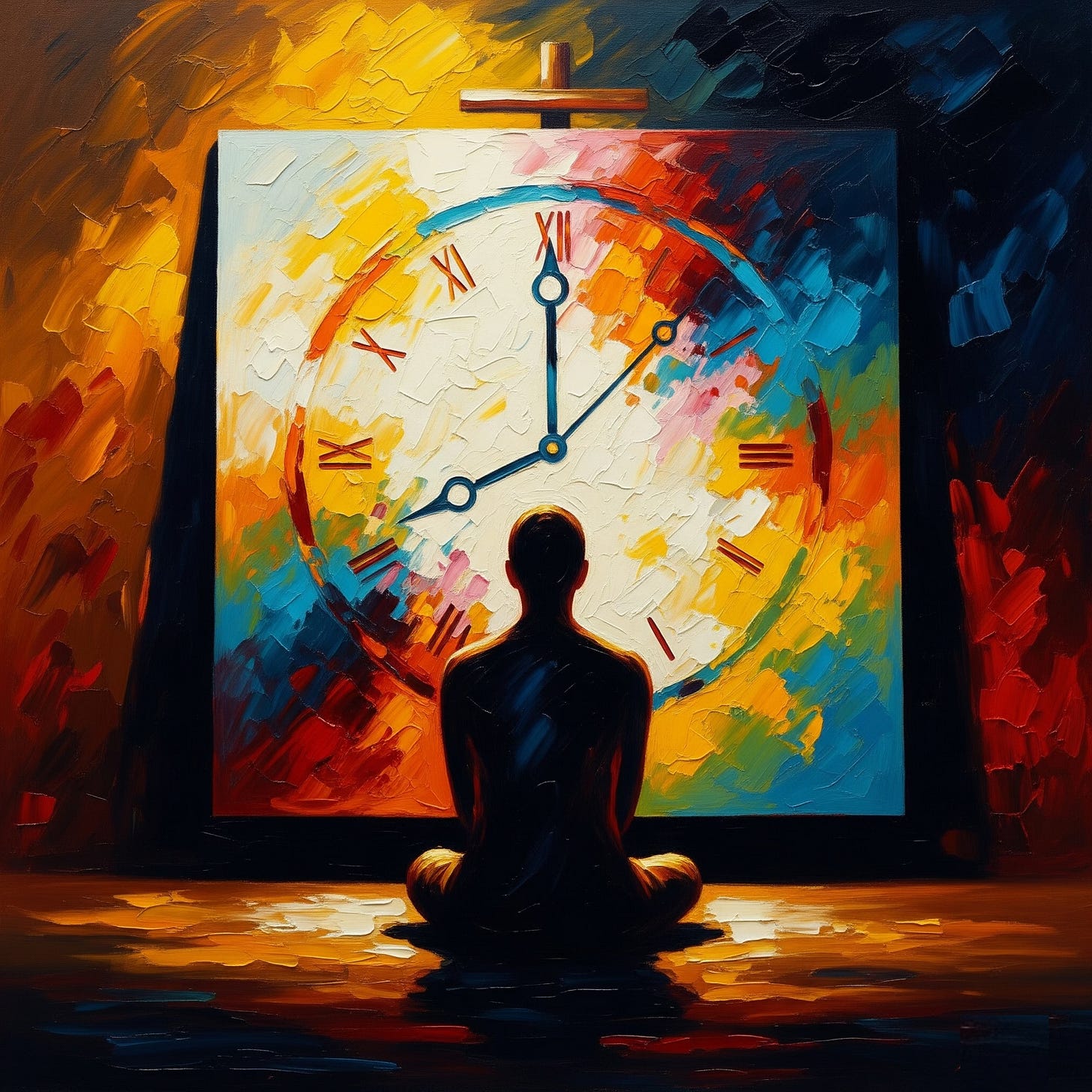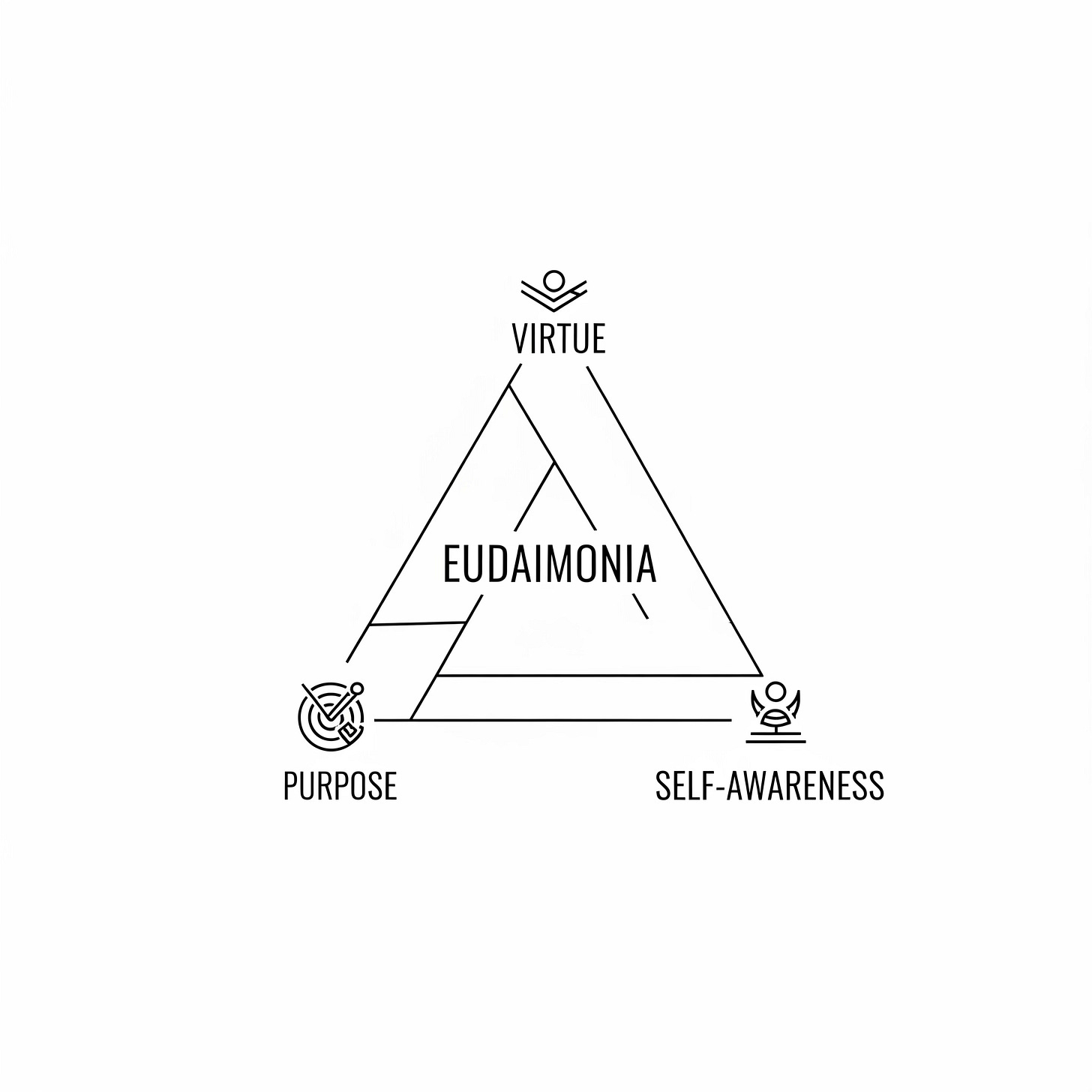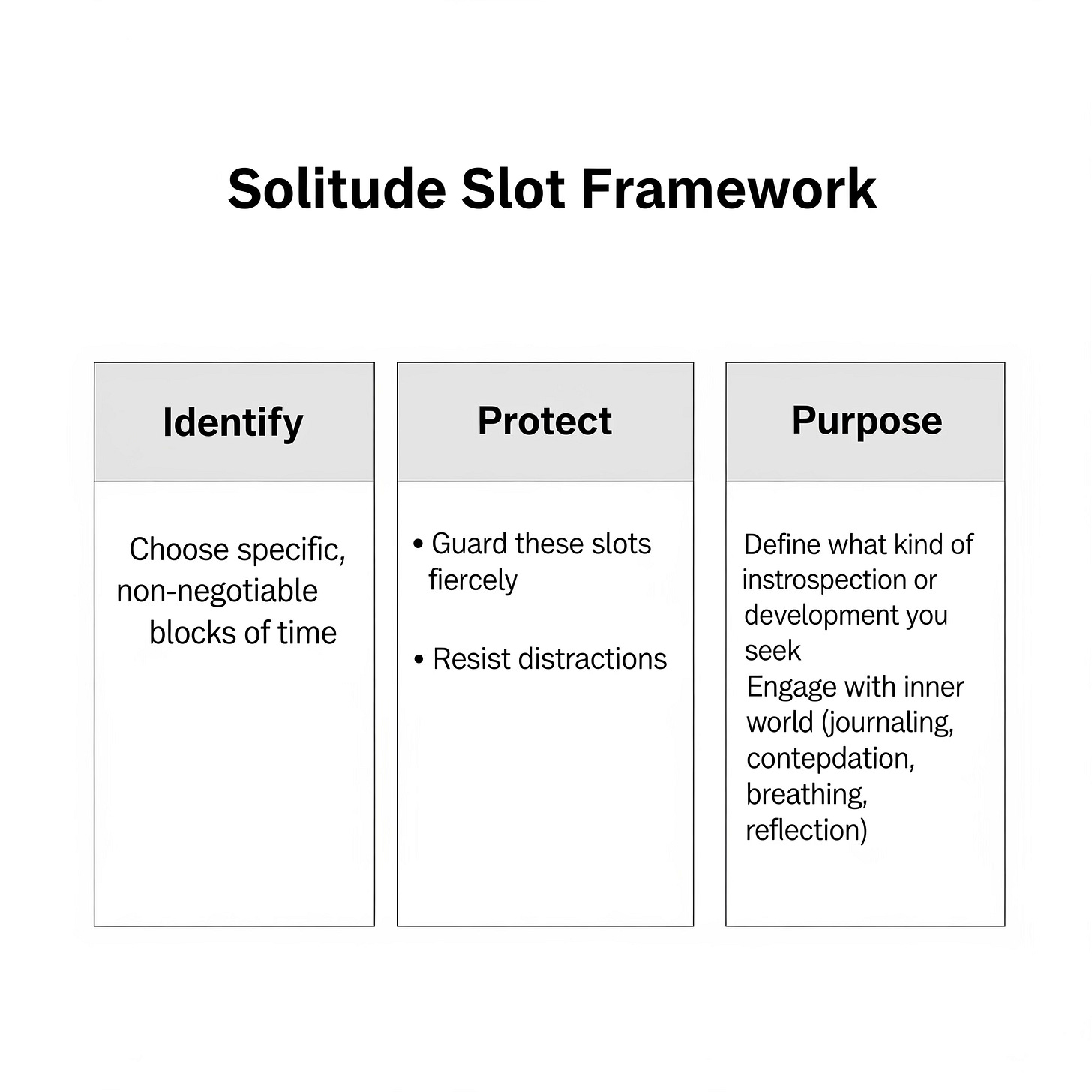Canvas of Time
The Power of Scheduled Solitude
Article inspired by Cal Newport book: Deep Work: Rules for Focused Success in a Distracted World.
"The greatest of faults is to be conscious of none." - Thomas Carlyle
The constant hum of modern life, with its endless notifications and packed schedules, often leaves us feeling perpetually in motion, yet paradoxically, stuck. We strive for personal growth and deeper self-understanding, but the very act of living seems to consume every available moment. It's a common lament: "I just don't have the time."
But what if we reframed our perception of time not as a scarce commodity to be managed, but as a vast, open canvas awaiting our intentional strokes?
In this article we explore the profound concept of scheduling our solitude, transforming fleeting moments into dedicated spaces for introspection and genuine personal development, guiding from philosophical understanding to psychological insight, then to practical applications, and finally, a clear framework for implementation.
Philosophical Roots
Time for Flourishing
“To be everywhere is to be nowhere,” observed Seneca. Philosophically, the idea of "making time" for oneself is deeply rooted in the pursuit of Eudaimonia, the ancient Greek concept of human flourishing. It's not about selfish indulgence, but about cultivating the inner landscape necessary for a meaningful and virtuous life.
Thinkers from Stoic philosophers to transcendentalists understood that true self-awareness requires a deliberate withdrawal from the external world.
This withdrawal isn't an escape from reality, but rather a necessary journey inward, a chance to recalibrate our moral compass and align our actions with our deepest values. Without this dedicated space, we risk living a life dictated by external pressures, rather than one chosen with conscious intent.
Psychological Insights
Unlocking Mental Space
Moving from philosophy to psychology, the benefits of scheduled solitude become even clearer. Our brains need periods of rest and recovery to function optimally.
In an always on culture, the default mode network, responsible for introspection, planning, and memory consolidation, often gets sidelined. When we intentionally carve out time for solitude, we activate this network, allowing our minds to wander, connect disparate ideas, and process experiences without interruption.
This is where true creativity blossoms, where solutions to lingering problems emerge, and where emotional regulation is strengthened. Consider the moments of clarity often experienced during a quiet walk or a solitary morning coffee, these are glimpses into the power of an uncluttered mind.
Proactive Time Management
The challenge, however, is not merely acknowledging the value of solitude, but actively integrating it into our busy lives. If the idea of "finding" time feels overwhelming, the alternative is to "create" it. This shifts our mindset from reactive to proactive. Instead of waiting for an empty slot to magically appear in our calendar, we consciously allocate specific time blocks for introspection, just as we would for a work meeting or a fitness class. This proactive approach is where practical application begins, moving us towards a structured way of embracing solitude.
The Solitude Slot Framework
A Practical Guide
To effectively transform time into a canvas for growth, we can adopt what I call the "Solitude Slot Framework." This framework has three key pillars: Identify, Protect, and Purpose.
Identify, Choose specific, non-negotiable blocks of time in your daily or weekly schedule – even if it's just 15-30 minutes. This could be early morning before others wake, a segment of your lunch break spent away from your screen, or a designated evening hour.
Protect, Guard these slots fiercely. Treat them with the same sanctity as an important work meeting. This means resisting the urge to check your phone, respond to emails, or engage in distractions during this time.
Purpose, Actively define what kind of introspection or development you seek. This time isn't just for doing nothing; it's for actively engaging with your inner world through journaling, silent contemplation, mindful breathing, or reflecting on your values.
For instance, someone, a busy marketing manager and mother of two, began reserving 20 minutes each morning in her quiet living room with a notebook and a cup of tea before her family stirred. Over three months, she reported fewer emotional outbursts and a clearer mind for making important decisions at work.
Deeper Engagement
As you become more adept at applying the "Solitude Slot Framework," you can gradually expand your canvas. This might involve dedicating an entire evening each week to a tech-free zone, or even planning a solo weekend retreat a few times a year.
The activities within this dedicated time can vary widely: some may find solace in reading profound literature, others in silent meditation, and still others in a long, reflective walk. The purpose is not the activity itself, but the intentional space it creates for internal dialogue and growth.
Think of it like an artist adding more detail and color to their developing masterpiece, each scheduled moment enriches your self-understanding, guided by the structure of the framework.
Your Inner World
However, the journey to scheduling solitude isn't without its potential pitfalls. You might encounter resistance from others accustomed to your constant availability, or even from within yourself, as the habit of constant engagement is deeply ingrained. If challenged, gracefully explain that this dedicated time is not about neglecting relationships, but about nourishing the wellspring from which you can give more authentically to others.
For instance, you might say, "I'm setting aside this time to recharge so I can be more present and effective in my interactions with you later."
Remember, just as a phone needs charging to function, so too do we need periods of disconnection to truly connect.
An Ongoing Creation
In conclusion, time, far from being a relentless taskmaster, is indeed a malleable canvas upon which we can paint a richer, more intentional life. By consciously scheduling moments of solitude and applying the "Solitude Slot Framework," we move beyond the reactive scramble of modern existence and embrace a proactive approach to personal growth.
This isn't a luxury, but a fundamental necessity for genuine self-discovery and a life lived with purpose. So, pick up your brush, claim your canvas, and begin the profound work of painting your inner world, one intentional moment at a time.






So very thoughtful about a crucial topic. "This isn't a luxury, but a fundamental necessity for genuine self-discovery and a life lived with purpose." So true a reminder. As a child of the fifties, this piece has me humming "Feelin' Groovy" (59th Street Bridge by Simon & Garfunkel).
Clear mind but with purposr is different. I do clear my mind at some point during the day, but it is just to experiece screenlessness and quiet. I listen to many audiobooks and have to turn them off once in a while.